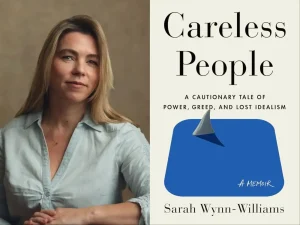This is the eighth in a series of opinion columns on Ontario’s 2022 municipal elections, written by Josh Lieblein for The CJN.
“The community can take care of themselves,” Philip Davidovits tells me—and it’s a theme that he keeps returning to throughout our conversation.
The realtor, businessman, and former Chairman of the Peel-Halton-Niagara Chapter of the American Chamber of Commerce is running in Ward 8 (Eglinton-Lawrence) against Mike Colle.
It’s quite an uphill battle, considering that Colle has served as either city councillor or MPP for the area since 1982. And yet, Davidovits says he has the solutions to all the big problems that plague our city: lack of local health care, lack of housing, endless construction.
“I don’t know why the other councillors don’t see this,” he admits. “All the money is there.”
For example, Davidovits doesn’t see the need for any more high-density housing to be built in the ward. He says the 71 projects currently awaiting completion is enough.
“You drive past these construction sites and there’s nobody working there. It’s because you don’t have the labour. A developer could have three of these projects. There should be a plan so people could see where they are working, and where they are not working.”
So, what should they be focusing on instead?
“Rooming houses,” he tells me. “There’s no infrastructure to house all the immigrants they want to bring into the Greater Toronto Area. They just want to build little boxes to keep them in. Instead of forcing people to sell their houses, people should be allowed to rent out rooms in their houses.”
Davidovits believes that rooming houses could be a solution. “The shelter system costs the city a lot of money,” he says. “Instead of putting homeless people in shelters, the city should vet them and pay homeowners $3,000 a month to let them stay in a room in their houses.”
“You could also pair students with older people in their apartments,” he says. “If you paid these people directly what you paid the long term care homes to house people, then more people would stay home and would be able to receive end of life care at home.”
Meanwhile, on the subject of health care, Davidovits wants to see more local clinics opened up.
“Right now, doctors are not involved in the community even though they know their patients best,” he says. “We used to have urgent care, now we just dump people at the ER. We should have clinics at Bathurst and Glencairn, Dufferin and Eglinton, Lawrence and Yonge… and any North American doctor should be allowed to work in Ontario.
“We should not be sending our patients to Brockville.”
Davidovits says that on the campaign trail he has spoken to many people in the Filipino, Jamaican, and Jewish communities who are willing to help out.
“I spoke to a woman at Hatzoloh Toronto, to people at the Taste of the Phillipines, people in the Ford government. (When asked for the names of specific people in the Ford government he spoke to, he tells me they don’t want their names public.
Davidovits has also gained a lot of experience defending people in court at the corner of Dufferin Street and Finch Avenue—”even though I’m not a lawyer,” he tells me.
“The legal aid system doesn’t work. Whatever the crown is getting paid to prosecute you, we should also be paying the defence to defend you. If you have money, you can get out, but if not, if you have a mental illness and can’t pay, they will put you on medicine.”
Apparently, bylaw officers spend too much time—and money—catching people who don’t, or can’t, pay their TTC fares. “Don’t look at the mentally ill as criminals,” he says. “If they have money, sure, go after them, but not if they forget their Presto cards.”
Another issue is the length of time it takes to process work visas. Although processing is a federal or provincial issue, Davidovits isn’t deterred. “There are too many people who are not allowed to work. With my business background, I can speed things up and make sure they get the paperwork in a timely manner.”
Finally, he’s a proponent of giving small businesses development grants instead of large corporations.
“If you invest in a small to medium business, it stays in the community. In Quebec, they gave GM a lot of money and they moved to the States.”
It’s an ambitious program, and Davidovits admits he might not get it all done in four years, given the opportunity. “Hospice care is the main thing I think I can fix,” he says.
“If I can finish that by the end of my first term, I’m doing okay.”
Josh Lieblein can be reached at [email protected] for your response to Doorstep Postings.







